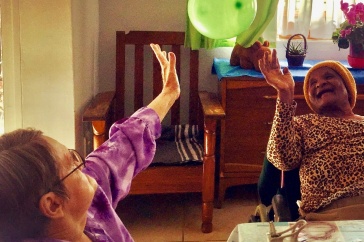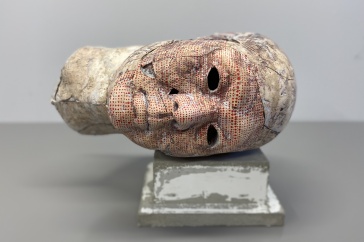DURHAM, N.H. – Coös County young adults report more problems with depression and substance abuse than rural young adults nationwide, potentially as a result of the stress of the ongoing economic uncertainty in region, according to new research from the Carsey Institute at the University of New Hampshire.
“Young adulthood is a critical stage of the life course when perceptions of educational and economic opportunities are shaped and realized. Even though economic hardship persists in many rural areas, the rural northeast has more recently seen the dramatic loss of manufacturing jobs – jobs that historically helped to sustain the region’s rural economy,” said Karen Van Gundy, associate professor of sociology, faculty fellow at the Carsey Institute, and author of the Carsey Institute brief “Mental Health Among Northern New Hampshire Young Adults: Depression and Substance Problems Higher Than Nationwide.”
“Exposure to these and other strains can increase the risk for depression and substance abuse, and analyses in this brief confirm that Coös young adults who were more ‘stressed out’ as adolescents report more symptoms of depression and substance abuse as young adults,” Van Gundy said.
The key findings are as follows:
- Coös County young adults, ages 18 to 21, report more symptoms of depression, substance abuse, and co-occurring depression and substance abuse than rural young adults nationwide.
- Relative to rural young women nationwide, Coös young women report higher rates of depressive symptoms and similar rates of substance abuse symptoms.
- Relative to rural young men nationwide, Coös young men report higher rates of substance abuse symptoms and similar rates of depressive symptoms.
- Rates of co-occurring depressive and substance abuse symptoms are four times higher for Coös County young adults than for rural young adults nationwide.
“Services that can help teenage girls cope with life strains could help to reduce their risk for depression in young adulthood. In addition, previous research has shown that stress increases risk for substance abuse symptoms for Coös girls and boys. Therefore, programs that help Coös youth manage or reduce their stress also may lessen their risk for substance abuse in adulthood,” Van Gundy said.
This research is based on two 201l surveys, the Coös Youth Study and the National Survey on Drug Use and Health. The Coös Youth Study is supported by a grant from the National Science Foundation and the Neil and Louise Tillotson Fund of the New Hampshire Charitable Foundation.
Conducted by the Carsey Institute, the Coös Youth Study provides data about the attitudes and experiences of the county’s youth as they approach adulthood and face the decision to remain in their community, seek opportunities elsewhere, or leave for an education and then return. By following the entire populations of two age groups over a 10-year period, the Carsey Institute helps North Country leaders gain a better understanding of young people’s decision making.
The complete Carsey Institute report about this research is available at http://carseyinstitute.unh.edu/publication/927.
The Carsey Institute conducts policy research on vulnerable children, youth, and families and on sustainable community development. The institute gives policy makers and practitioners the timely, independent resources they need to effect change in their communities. For more information about the Carsey Institute, go to www.carseyinstitute.unh.edu.
The University of New Hampshire, founded in 1866, is a world-class public research university with the feel of a New England liberal arts college. A land, sea, and space-grant university, UNH is the state's flagship public institution, enrolling 12,300 undergraduate and 2,200 graduate students.
GRAPHICS
http://www.unh.edu/news/img/carsey/coos_mentalhealth.jpg
Coös County young men and women show higher levels of co-occurring depressive and substance abuse systems than rural young adults nationwide.
Source: Carsey Institute at UNH




















































